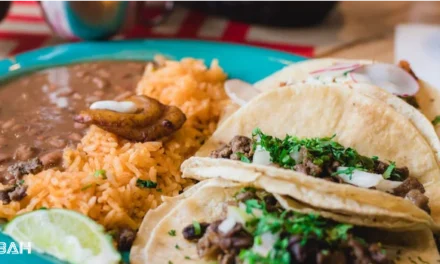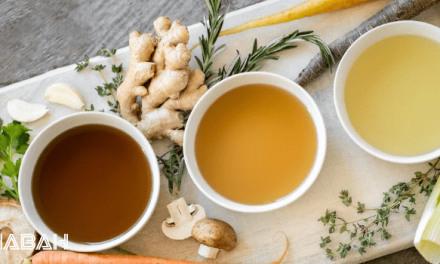Join me on a culinary journey as we delve into the divine palate, uncovering the hidden secrets and rich history to learn exactly what halal foods are.
Introduction to Halal Foods
Halal is an Arabic word that means “permissible” or “lawful” in Islam. When it comes to food, halal refers to foods and drinks that are allowed to be consumed by Muslims according to Islamic dietary laws. Some key aspects of halal foods include:
- Meat from permitted animals slaughtered according to Islamic law
- No pork or pork by-products
- No alcohol or intoxicants
There are also certain gray areas when it comes to ingredients, additives and processing aids used in food production. Many Muslims seek halal certification from credible organizations to ensure the food they eat meets halal standards.
Here are some examples of foods that are generally considered halal and haram:
Halal Foods
- Beef, lamb, goat, chicken, duck, turkey, etc slaughtered properly
- Fish and seafood like fish, shrimp, lobster and calamari
- Dairy products like milk, cheese, yogurt
- Fruits, vegetables, grains, legumes, nuts, seeds
- Spices and condiments
Non-Halal Foods
- Pork and pork products like bacon, ham, pepperoni
- Alcoholic drinks like beer, wine, whiskey, vodka, etc
- Foods containing non-halal animal shortening, gelatin, enzymes or emulsifiers
- Meat from carnivorous animals, reptiles, insects
The halal status of some foods like shellfish, vanilla extract, cheeses with microbial enzymes, whipped cream with gelatin, and foods cooked in alcohol can be debated. That’s why it’s important for Muslims to research ingredients and processing methods or look for halal certification from credible organizations.
What Makes Food Halal
For food to be considered halal, it must meet certain requirements according to Islamic dietary laws:
Halal Animal Slaughter
- The animal must be alive prior to slaughter.
- The slaughter itself must be performed by a Muslim.
- The animal must be slaughtered by making a cut across the neck while invoking the name of Allah. This method is believed to be the least painful and allows the blood to fully drain.
- The knife must be razor sharp to minimize suffering.
- The slaughter should be performed in one swift motion.
As stated in our lamb post:
“The animal should not suffer or see the blade before slaughtering.”
Cattle, sheep, goats, chickens, ducks, and other poultry are halal when properly slaughtered.
Other Requirements
- Pork and pork products like ham, bacon and pepperoni are prohibited.
- Alcohol and other intoxicants are forbidden. This includes beer, wine, vodka, etc.
- Certain additives and ingredients like gelatin or rennet may be derived from non-halal sources.
- Food contact surfaces, equipment and utensils should be thoroughly cleaned between handling halal and non-halal products to avoid cross-contamination.
| Permitted Ingredients | Prohibited Ingredients |
|---|---|
| Vegetable oils, vinegar, salt, sugar, spices | Lard, alcohol, pork derivatives |
| Permitted emulsifiers like lecithin | Non-halal emulsifiers |
| Natural flavors | Artificial flavors with alcohol |
| Fruit concentrates | Non-halal meat broths |
Meeting halal requirements ensures the food is wholesome, permissible and aligns with Muslim beliefs.
Common Halal Foods
Many common foods are considered halal and regularly consumed by Muslims. Here are some major categories:
Meat and Poultry
- Beef, lamb, goat, buffalo that are slaughtered properly
- Chicken, turkey, duck that are slaughtered properly
- Game meat like deer, antelope, quail, etc.
According to this source, “All fuqaha’ are unanimous that camel, cattle and sheep are halal beyond any doubt.”
Seafood
- Fish of all types (except those prohibited in the Quran)
- Shrimp, prawns, lobster, crab, mussels
- Squid, octopus, calamari
As stated here, “All seafood is halal as long as it was caught alive from the sea and slaughtered properly according to sharia.”
Dairy
- Milk, cheese, yogurt, butter, cream, etc from cow, sheep, goat or buffalo
- Most cheeses like cheddar, mozzarella, feta, cottage, etc.
- Ice cream and frozen desserts
Fruits, Vegetables, Grains
- All fresh fruits like apples, oranges, bananas, grapes, dates, etc
- Vegetables like spinach, carrots, potatoes, mushrooms, lettuce, etc
- Grains and starches like rice, wheat, maize, millet, beans, lentils, chickpeas
- Nuts, seeds, dried fruits, condiments
This wide variety of plant foods are considered intrinsically halal. They provide many options for flavorful halal meals.
Eating Halal Outside the Home
When dining out or eating food prepared outside the home, Muslims must take extra care to ensure the halal status of meals. Here are some tips:
- Look for halal certification symbols on food packaging or restaurant menus
- Ask restaurants if they serve halal meat dishes and avoid pork or alcohol
- For meat, ask where it was sourced and how it was slaughtered
- Check ingredient lists carefully for any haram additives
- Watch out for cross-contamination of halal foods with non-halal ones during processing or cooking
According to this source:
When eating out or ordering takeaways, halal diners should ask restaurant staff if halal meat is served and where it is sourced from.
When in doubt about a menu item or unfamiliar cuisine, traditional vegetarian or seafood dishes are usually a safer bet. For home-cooked meals, seek out halal certified packaged foods whenever possible.
Here are some examples of types of food and what to look out for:
| Food Type | Things to Check |
|---|---|
| Cheese | Animal enzymes or rennet |
| Yogurt | Gelatin |
| Ice Cream | Whey, emulsifiers |
| Chocolate | Lecithin, flavors |
| Bread | Emulsifiers, alcohol |
| Snack foods | Gelatin, flavorings |
Carefully sourcing halal foods ensures Muslim diners follow their religious dietary obligations no matter where they eat.
The Halal Food Industry
The halal food industry has been growing significantly in recent years to meet rising demand from Muslim consumers worldwide. Here are some key points about the industry:
- The global halal food market is projected to reach $2.55 trillion by 2024.
- Halal certification has expanded with over 400 organizations worldwide. This allows more oversight and standardization.
- Food manufacturers like Nestle, Cadbury, and Unilever are obtaining halal certification for certain products and facilities. As stated here:
Multinational food corporations such as Nestle, Kraft Foods, McDonalds, Cadbury and Unilever have obtained halal certification for some of their products and facilities to serve Muslim populations.
- Restaurants like Pizza Hut and Subway also offer halal options in certain regions.
- Food service providers in places like hospitals, schools and workplaces are adjusting to serve halal meals.
This growth requires changes across supply chains:
- Sourcing permissible raw ingredients that are halal certified
- Using production and processing facilities dedicated for halal food
- Careful handling to prevent cross-contamination
- Proper packaging, labeling and storage
The expanding halal industry provides more high-quality options for Muslim consumers in retail stores and restaurants. Companies also benefit from tapping into this large market segment.
The Significance of Halal Eating
Eating halal foods is an important part of practicing Islam for Muslims around the world. Here are some key reasons why it matters:
- Consuming halal is considered an act of obedience to God. The Quran establishes what foods are permitted and prohibited.
- Halal dietary laws emphasize wholesome, ethical and hygienic consumption. As stated in this source:
The halal method of slaughter protects the animal’s health right up to the point of slaughter, and promotes hygiene and humane treatment.
- Eating halal unites the Muslim community worldwide around shared values and practices. It connects their daily life to faith.
- Halal requirements allow Muslims to live according to their moral convictions. Consuming permitted foods gives peace of mind.
- Choosing halal shows care and awareness about one’s body and soul. It demonstrates self-discipline.
- For retailers and food companies, providing authentic halal products builds trust with Muslim consumers.
In a world with much unhealthy, unethical food, halal principles help guide Muslims to make mindful dietary choices aligned with their beliefs. Seeking halal options enables Muslims to fulfill this important religious obligation.
Frequently Asked Questions – What Are Halal Foods
What is Halal food?
Halal food is any food that is deemed permissible according to Islamic dietary laws. It is a term derived from the Arabic word “halal” which means “permissible” or “lawful”.
How is the status of a food item determined to be Halal or Haram?
For a food item to be considered Halal, it must meet the standards set by Islamic law. Certain criteria must be met, such as the method of slaughter, ingredients used, and the absence of haram (prohibited) ingredients.
What is the significance of Halal certification?
Halal certification is a process where a food product or establishment is assessed and certified to meet the Halal standards. It provides assurance to consumers, particularly Muslims, that the food is Halal and complies with Islamic dietary laws.
How is Halal different from Kosher?
Kosher refers to food that is prepared according to Jewish law. Although there are some similarities between Halal and Kosher, the requirements and processes for certification differ. Halal focuses on Islamic dietary laws, while Kosher adheres to Jewish dietary laws.
Can non-Muslims consume Halal food?
Yes, non-Muslims can consume Halal food. Halal food is not limited to Muslims only and is enjoyed by people of various religious backgrounds.
Is there a specific method of animal slaughter for Halal meat?
Yes, Halal meat must be slaughtered by a Muslim who follows the appropriate Islamic method. The animal must be alive at the time of slaughter, and the slaughterer must recite the name of Allah and swiftly cut the jugular vein, ensuring a quick and painless death.
Are Halal and Haram the only classifications for food in Islam?
Halal and Haram are the primary classifications, with Halal referring to what is permissible and Haram referring to what is prohibited. However, there are also categories such as Makruh (discouraged but not sinful) and Mustahabb (recommended) that provide further guidance on dietary choices.
Are there any common Haram ingredients in food?
Some examples of Haram ingredients include pork, alcohol, any form of intoxicants, and animals that are not slaughtered according to Islamic guidelines. It is important to read product labels and understand ingredient listings to avoid consuming Haram ingredients.
Conclusion
In summary, halal foods are those permitted for consumption by Muslims according to Islamic law. Halal dietary guidelines prohibit certain foods like pork, alcohol and improperly slaughtered meat.
There are many common halal foods like beef, chicken, fish, dairy, fruits and vegetables. Muslims must be diligent in checking ingredients and production methods when choosing processed foods and dining out.
The halal food industry is rapidly expanding to serve the needs of Muslim consumers worldwide. Seeking authentic halal products enables Muslims to adhere to their moral convictions and religious obligations.
Eating halal is an important part of daily life for Muslims. Beyond just food, halal represents an overall lifestyle based on ethical and wholesome principles. Halal dietary laws provide health benefits as well as spiritual grounding.
For retailers and food companies, providing credible halal offerings creates significant business opportunities. But more importantly, it allows Muslim communities to feel recognized and supported in societies around the world.





